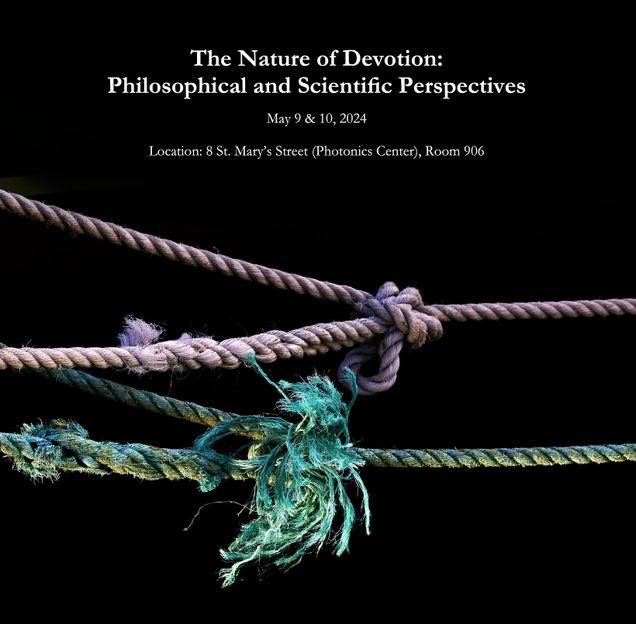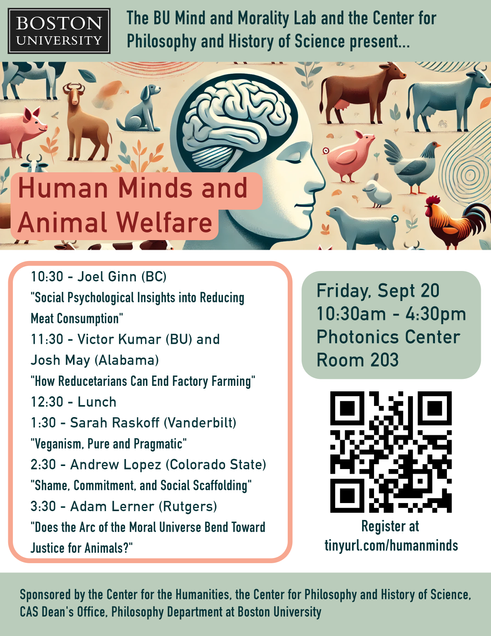Home
The Center for Philosophy & History of Science is one of twenty-two independent research centers and institutes within Boston University’s College of Arts of Sciences. Founded in 1960, the Center’s mission is to build bridges between the humanities and sciences by promoting interdisciplinary research into the historical, philosophical, ethical, and social factors that govern the theory and practice of science. For over 60 years, the Center has organized the Boston Colloquium for Philosophy of Science, which brings together the world’s leading researchers on half a dozen themes each year in a premier international forum.
Upcoming Events
The Non-Ideal Philosophy of Language Workshop
October 3-5, 2024
Non-ideal philosophy of language encompasses both methodological commitments and subject matter. There is something particular about philosophizing about language that is different from some other areas of philosophy. There is a limit to how much we, as speakers, can abstract or idealize, since our target of inquiry — language — is by nature applied. It is, for the most part, the language we use in everyday speech that many philosophers of language address. Given this, one possible referent of ‘non-ideal philosophy of language’ is some kind of non-standard or non-traditional approach to philosophy of language, at least as it deviates from the historical canonical approaches to analytic philosophy of language.
A second interpretation, following Charles Mills’ groundbreaking work on non-ideal philosophy in ethical theory, is that the scope of non-ideal philosophy of language includes inquiry and theorizing that is “able to address many, if not all, of the concerns not only of women, but also of those, men as well as women, subordinated by class and race, and the underdevelopment of the “South” — and reflecting the distinctive experience of the oppressed while avoiding particularism and relativism” (2005 p. 166). We can imagine five features of non-ideal philosophy of language: that it (a) eschews idealizations and abstractions in favor of attending to the realities of how people use and experience language; (b) sometimes or often deals with subject matter that is social, political, or liberatory in nature; (c) does so with methodological considerations and commitments that are anti-oppressive; (d) embraces some kind of methodological pluralism about how to theorize about such language; and (e) involves some (explicit or implicit) commitment to reflect on our own role as theorizers.
So, non-ideal theory can be about a way or an approach to philosophy — a methodology or a theoretical commitment. Less familiarly, non-ideal theory can be about certain kinds of subject matter: those that aren’t idealized (see Mühlebach 2022), or those that concern experiences of oppression (Mills 2005). In this workshop, eight invited speakers will present original unpublished work in progress on topics related to non-ideal philosophy of language – including cognitive science, psychology, and linguistics – and its relation to politics, race, gender, oppression, and resistance.
News Announcement
We are excited to welcome students, faculty, and staff back to campus for the 2024-2025 academic year. Please feel free to visit us in STH 506.
Recent Events
Human Minds and Animal Welfare
September 20, 2024
The conference will bring together ethicists, psychologists, and philosophers of psychology. It will explore empirical research in social science about attitudes and behavior toward animals, and how this research bears on questions in moral and political philosophy surrounding the consumption of animal products.

The Nature of Devotion: Philosophical and Scientific Perspectives
May 9-10, 2024
Devotion seems to involve a particularly robust form of commitment, which might differ from standard forms of commitment in its intensity, stability, resistance to compromise, epistemic status, or deliberative weight. But how, exactly, should we understand devotion? This workshop aims to explore the way in which existing scientific literatures and philosophical discussions can be integrated with the study of devotion. Conference website: https://www.philosophyofdevotion.com/2024-conference.html




